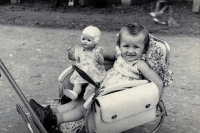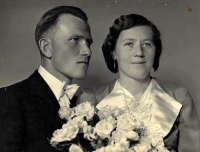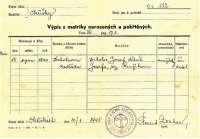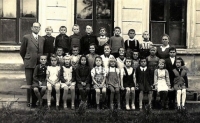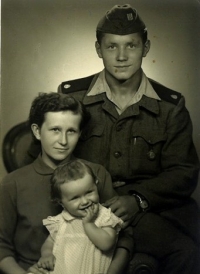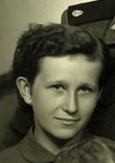I saw everything burning, sirens sounding, air raids, and I cannot forget it

Stáhnout obrázek
Naděžda Kantová was born on August 15, 1940 in Okříšky near Třebíč. Although she was only a small child during the war, she says it marked her for life. Her father, Josef Drholec, was arrested for keeping anti-German leaflets and imprisoned in Buchenwald for two years. He returned from there with tuberculosis and a damaged spine. Naděžda remembers the end of the war - air raids, hiding and grenades that remained in the surrounding forests. She started her first job immediately after leaving primary school, at the age of fourteen. She got married in 1957 and moved with her husband to Brtníky in the Northern Bohemia. She worked there in the Mikov factory in Mikulášovice and at the same time lived right on the border. She does not like to remember the vicissitudes associated with life close to the guarded state border. After three years, she moved from the borderland to Jihlava.
